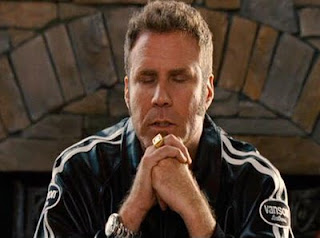When I was in seminary, I got drunk on Stanley Hauerwas. His polemic works against Modernity, Christendom, Liberalism, Individualism, etc. - struck a chord with me, and gave me a certain set of diagnostic lenses to see "How stuff works" in our late modern world. For all that I learned from Hauerwas and will no doubt continue to learn, I am in his debt.
Yet even while I was stumbling drunk on his work, there were moments of clarity where I saw something lacking. In his hyperbolic assertion that Christianity hangs or falls on the fidelity of the Church as a concrete social/political body, understood as an alternative to "the world" - this all seemed to at least downplay or, worse, denigrate things like personal piety or spiritual formation. The self was lost in that elusive, fugitive "We/Us" of the capital-C Church.
So for all kinds of good reasons I remain generally positive on Hauerwas, but I'm also grateful for smarter folks than I doing critical engagement on his work, because it might give me better handles on where the limits of his work lie, and where I might mark out points of departure. The most recent, and what looks to be very intelligent, entry in this field is Hauerwas: A (Very) Critical Introduction , by Nicholas M. Healy , published by Eerdmans. And First Things has a helpful review of the book up from John Webster, tellingly entitled "Ecclesiocentrism." It's short and sweet, so give it a look if you love or hate Stan.
Yet even while I was stumbling drunk on his work, there were moments of clarity where I saw something lacking. In his hyperbolic assertion that Christianity hangs or falls on the fidelity of the Church as a concrete social/political body, understood as an alternative to "the world" - this all seemed to at least downplay or, worse, denigrate things like personal piety or spiritual formation. The self was lost in that elusive, fugitive "We/Us" of the capital-C Church.
So for all kinds of good reasons I remain generally positive on Hauerwas, but I'm also grateful for smarter folks than I doing critical engagement on his work, because it might give me better handles on where the limits of his work lie, and where I might mark out points of departure. The most recent, and what looks to be very intelligent, entry in this field is Hauerwas: A (Very) Critical Introduction , by Nicholas M. Healy , published by Eerdmans. And First Things has a helpful review of the book up from John Webster, tellingly entitled "Ecclesiocentrism." It's short and sweet, so give it a look if you love or hate Stan.














